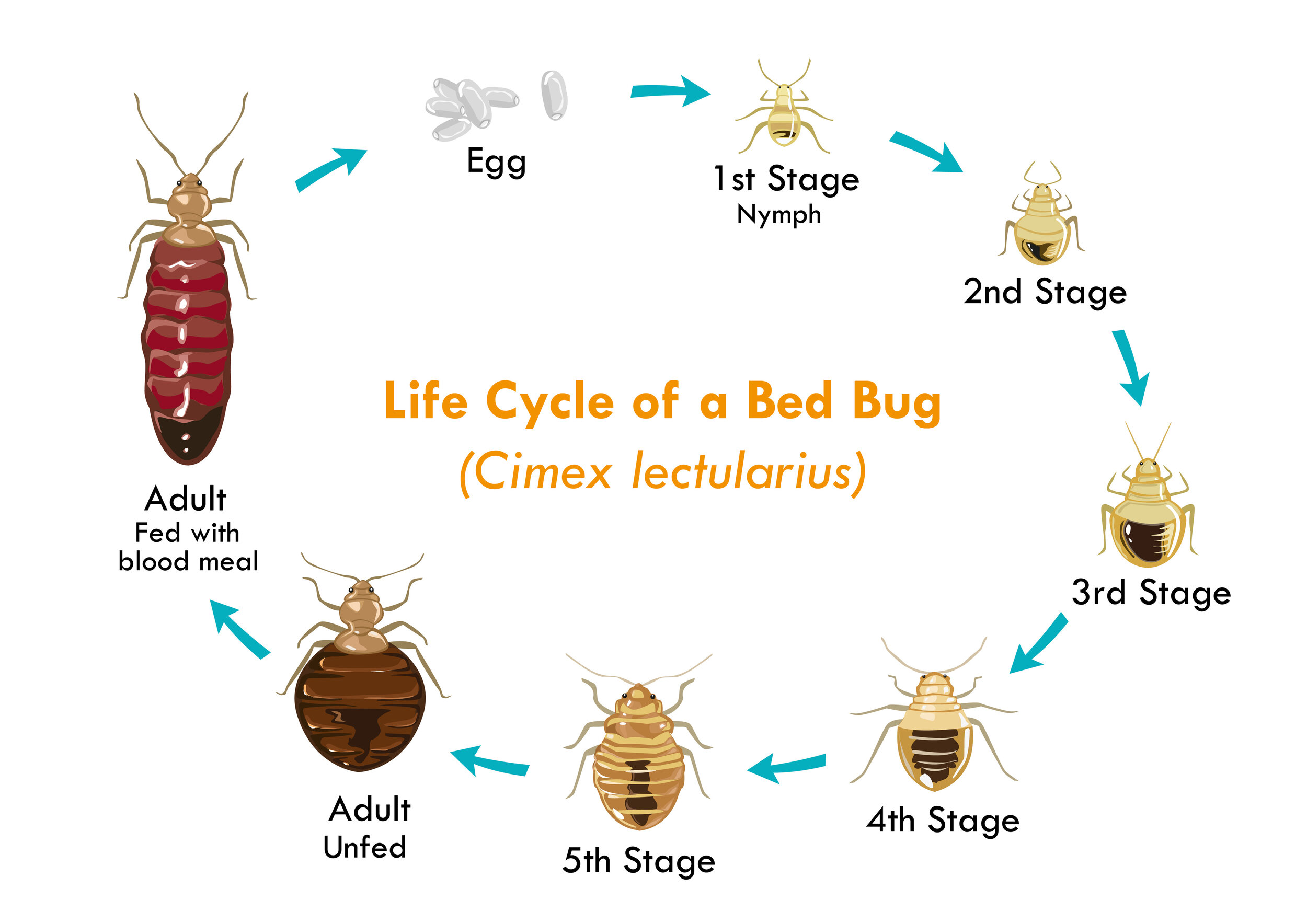Trusted A1 Bed Bug Treatment Houston - Proven Approaches
Trusted A1 Bed Bug Treatment Houston - Proven Approaches
Blog Article
Understanding the Lifecycle of Pests for Targeted Control Approaches
Recognizing the lifecycle of insects is a basic element of efficient parasite administration techniques. With a much deeper understanding of just how insects flourish and develop, tailored control methods can be created to resolve certain points in their lifecycle, eventually leading to even more effective parasite management outcomes.
Value of Understanding Bug Lifecycle
Recognizing the lifecycle of insects is necessary for creating reliable and targeted control approaches in bug management. By comprehending the various stages a pest experiences from egg to adult, insect control experts can identify at risk factors in the lifecycle where intervention can be most successful. As an example, understanding when larvae are most energetic can aid determine the ideal timing for applying larvicides. Additionally, understanding the life expectancy of a bug types can assist in forecasting populace development patterns and potential infestation risks.
Furthermore, recognizing the specific environmental problems essential for each and every phase of the insect's lifecycle can direct decisions on environment alteration or exemption techniques to interrupt the lifecycle and decrease parasite populaces. This understanding enables pest management specialists to apply aggressive procedures instead of depending entirely on reactive therapies, leading to more long-term and lasting parasite control remedies. Eventually, a thorough understanding of parasite lifecycles encourages bug control experts to customize their methods successfully, reducing ecological influences and making the most of control end results.
Secret Phases in Insect Advancement
To successfully carry out targeted control approaches in bug monitoring, a vital element exists in adequately determining and recognizing the key stages in pest growth. Bug advancement normally consists of several key phases that are critical for their lifecycle and monitoring.

Vulnerabilities in Pest Lifecycle
Throughout the numerous phases of a parasite's lifecycle, unique susceptabilities emerge that can be strategically targeted for efficient control actions (A1 Bed bug Exterminator houston). One critical susceptability lies in the egg phase, where pests are often much more prone to specific insecticides or organic control agents due to their soft external shell, making them much easier targets for treatment. Understanding these susceptabilities in the insect lifecycle is crucial for developing specific and efficient control strategies that effectively manage pest populaces while minimizing ecological effect.
Applying Targeted Control Actions

Applying targeted control measures commonly involves a multi-faceted technique. This might consist of habitat adjustment to make the environment less hospitable to parasites, such as getting rid of standing water for mosquito control or securing access factors for rodents. In addition, biological control methods can try this site be made use of, where all-natural killers or microorganisms are introduced to maintain parasite populations in check.
Chemical control, such as the cautious application of pesticides, is another typical technique. Nonetheless, it is necessary to use these substances sensibly to decrease ecological impact and possible harm to non-target species. Integrated Parasite Monitoring (IPM) methods that integrate numerous control procedures in a coordinated and sustainable way are typically the most reliable in attaining long-term pest administration objectives. By implementing targeted control procedures based on a thorough understanding of parasite lifecycles, pest populaces can be effectively controlled while reducing risks to human wellness and the setting.
Enhanced Insect Monitoring Practices

In addition, the incorporation of organic control representatives, such as all-natural predators or pathogens of bugs, can aid lower dependence on chemical pesticides and promote a more well balanced community. Carrying out physical obstacles and catches can additionally become part of enhanced pest management methods, supplying non-toxic and targeted remedies for pest control. Furthermore, using scents and various other semiochemicals can interrupt pest mating patterns and communication, bring about decreased bug populaces over time.
Conclusion
In conclusion, understanding the lifecycle of parasites is vital for reliable insect monitoring strategies. By determining key stages in bug advancement and vulnerabilities in their lifecycle, targeted control actions can be applied to lessen bug populaces. Enhanced parasite monitoring techniques can help in reducing the dependence on broad-spectrum pesticides and promote even more lasting and eco friendly insect control techniques. This understanding plays a crucial function in go to website maintaining healthy ecosystems and agricultural efficiency.
Understanding the lifecycle of insects is essential for developing reliable and targeted control methods in bug monitoring. By comprehending the different phases a bug goes through from egg to adult, pest control specialists can identify susceptible factors in the lifecycle where treatment can be most effective. Ultimately, a comprehensive understanding of insect lifecycles equips bug control experts to tailor their methods properly, lessening environmental effects and maximizing control results.
By carrying out targeted control actions based on a thorough understanding of pest lifecycles, insect populaces can be effectively controlled while lessening threats to human wellness and the environment.
By determining crucial phases in parasite development and vulnerabilities in their lifecycle, targeted control steps can be applied to minimize insect populations.
Report this page